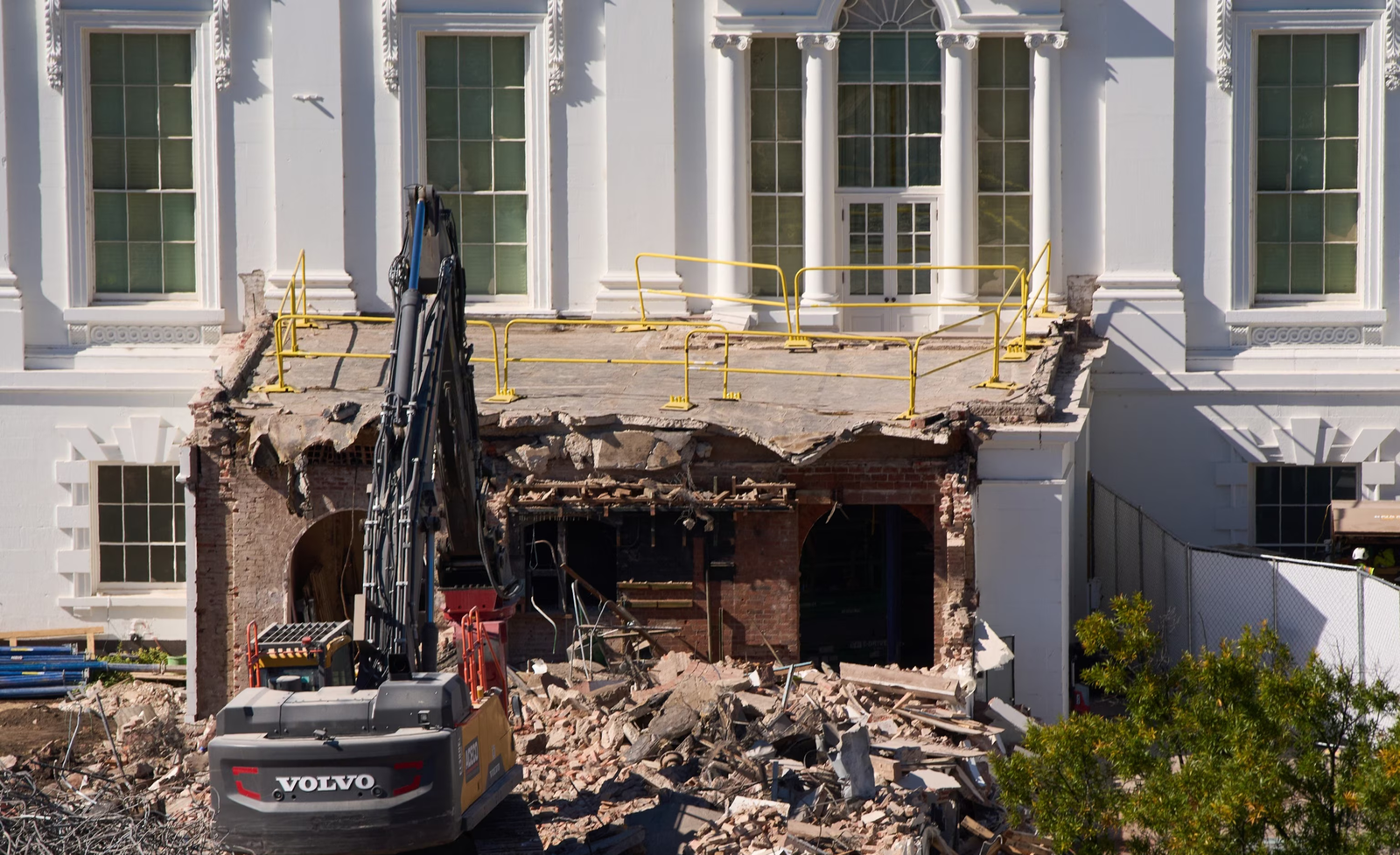
It is time, if not long past time, to start dealing with some unfortunate truths.
Let’s start with the obvious: The East Wing of the White House is not coming back – not ever. It was destroyed at the whim of a petulant manchild who felt that scatological AI videos were not a sufficient expression of anger at the defiance of some seven million rightfully pissed off American citizens.
Perhaps, if we are all incredibly lucky, it may be restored at some point – but not before being replaced by a gilded obscenity being directly underwritten by some of the largest technology companies on the planet, many of which are equally guilty of having empowered the petulant manchild in the first place.
Perhaps less obvious: the eighty year Pax Americana created after WWII out of the sacrifice and efforts of millions has also been destroyed, equally not to return, but with the possibility – at least so far – of restoration.
But without realistic and effective planning, that restoration is unlikely to succeed. Willful ignorance of the need and scope of that restoration makes success even less likely.
Unfortunately, ‘willful ignorance’ is kinda how we got here in the first place.
In contrast to something like the network outage that denied service to over 16 million people when US-East-1 failed, systemic failure within political systems can be misrepresented, misdiagnosed, and even outrightly ignored – and it’s a little hard to conduct a root failure cause analysis meeting if half the people in the meeting are insisting that the failure is simply ‘fake news’.
Part of what attracted me to working with digital technologies in the first place was the binary and unambiguous nature at the root of all things digital: that damned bit is either on or off, and no amount of spin or obfuscation is going to flip it. Systems based on digital technologies are either working or they are not – and, again, no amount of spin is going to make a failed system functional.
Only hard work makes that happen.
Any technology professional who applies the same standard to the world we’re living in as they do to the systems they maintain is going to come to conclusions not far removed from the ones I’ve reached. The ones who are fortunate enough to not be adding an ‘open for work’ graphic to their LinkedIn profile have, at least for now, the luxury of ignoring this particular systemic failure. But anyone who thinks they are immune is already fully engaged in willful ignorance. For those not so engaged, I have a proposal.
Start planning for the restoration.
It is impossible to ignore the role technology has played in bringing about the current state of things. It is increasingly difficult to ignore the consequences of letting the ownership of that technology be concentrated into a handful of bloated billionaires who exist beyond any accountability or control. Even after the bloated manchild they enabled has gone to the accounting none of us get to avoid… those oligarchs will remain.
Fundamentally, the internet is just a peer to peer network protocol designed to survive nuclear war – developed, I might add, with U.S. taxpayer dollars. There is no fundamental reason, other than corporate greed and profitability, why something like Amazon Web Services (the owner of US-EAST-1) should be a critical component to this network. While there is no evidence that anyone died as a result of their failure, it could certainly happen the next time – and there will certainly be a ‘next time’.
The old saying that ‘no one ever got fired for recommending IBM’ has pretty much been updated at this point to include AWS, Google, and the other big tech companies. But maybe that saying is indicative of the complacency and failed imagination that also played a major role in getting us into this mess in the first place.
And, just maybe, that complacency needs to end.
If you do tech for a living and you’re worried about being replaced with AI, you should be. But you should be equally worried about what happens to your family, friends, and community after there is no one managing the tech that runs your world except capitalists, cronies, and machines. And if it worries you are much as it worries me, maybe you should be doing something about it.
Start planning for the restoration. I remain hopeful that there will be one. Steve Bannon’s obscene power fantasies notwithstanding, the pendulum still swings. If enough of us who are knowledgeable and engaged make our voices heard, there is at least the possibility of rebuilding the Internet the way it was once imagined. We don’t necessarily have to scrape it down to the bare metal (it’s effectively impossible, no matter how deeply attractive the idea might be), but we can certainly develop community-based alternatives to corporate-owned fascist enablement and control.
And we should.


